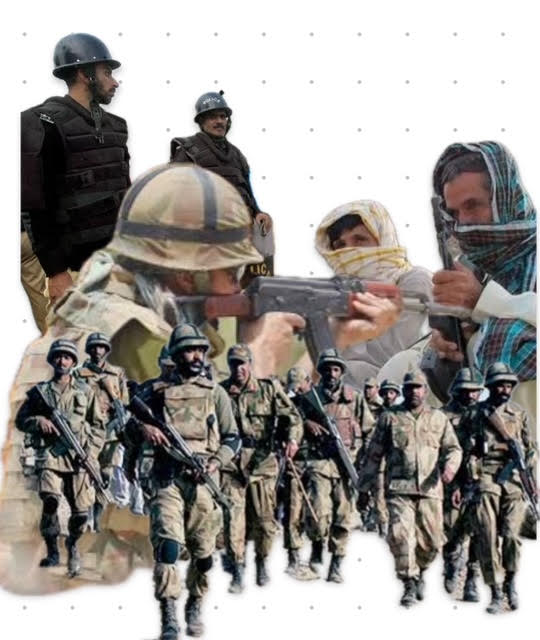
TSB Analysis
Amidst political and economic instability, Pakistan is facing a surge in terrorist activities in different parts of the country particularly in provinces of KPK and Balochistan. A recent suicided and gun & grenade attack in Dera Ismail Khan requires serious review of the situation to revamp and redesign the security apparatus and plans.
On 12th December, a six-man suicide squad drove an explosive-laden truck into a military camp in Daraban area of the district Dera Ismail Khan, killing at least 23 soldiers, the heaviest death toll in a single attack in years. All six attackers were killed in the retaliatory fire by the soldiers. The army had set up the base camp in a police station complex in the Daraban.
The death toll might rise as several of the wounded were in critical condition, as informed by Aizaz Mehmood, an official of the state-run rescue service.
The attack was claimed by a new militant group, Tehreek-e Jihad-e Pakistan (TJP). It has already claimed several big bombings in recent months. This year terrorist attack on Mianwali air base, as well as Zhob garrison attack in July, are believed to be the handiwork of TJP. The sources within Pakistan intelligence are of the view that TJP is not a separate group but a diversionary tactic by Tehreek-e-Taliban Pakistan (TTP), a globally designated terrorist group, operating against Pakistan, out of sanctuaries on Afghan soil. TJP is to TTP as Majeed Brigade is to Balochistan Liberation Army (BLA).
The terrorist group TTP has been carrying out militancy against the state for years, seeking to find a foothold in the tribal areas of Pakistan. It pretends to be fighting for imposition of their brand of Islamic system of governance. Since its formal inception in December 2007, it has kept changing its stated objectives. It took birth as the foot-soldiers of al Qaeda, which has strong links with the Afghan Taliban.
Pakistan has irrefutable evidence that this attack, like many other previous terrorist attacks, was conducted with the help and support of TTP leadership operating from Afghanistan. It urged Afghanistan’s Taliban government to extradite fugitive militant leaders allegedly responsible for plotting this terrorist attack.
“Afghanistan must take strong action against perpetrators of this heinous attack and hand them over to Pakistan along with the TTP leadership in Afghanistan,” Foreign Ministry spokesperson Mumtaz Baloch told a weekly news conference in Islamabad. “We also expect Afghanistan to take concrete and verifiable steps to prevent the use of Afghan soil by terrorist entities against Pakistan.”
Taliban spokesman Zabihullah Mujahid, who has the propensity to hurl provocative and irresponsible responses to such serious matters, “rejected as groundless Islamabad’s allegations that the assault was connected to Afghanistan”.
The evasive and provocative steps and statements by the Afghan Taliban leadership have aggravated the situation and added to the bitterness between the two neighbouring countries. Vast majority of Pakistanis, as well as Afghans, feel justified to lambast the previous Pakistani governments for harbouring and supporting Afghan Taliban during the last 20 years. Its policy of running with hare and hunting with hounds has badly backfired. The present government of Pakistan has taken a stiff stance now and has started sending the illegal Afghanis back to Afghanistan. Pakistan’s security agencies have found many Afghanis involved in terrorism, espionage and serious crimes in the country, at times at the behest of foreign intelligence agencies like Indian RAW.
It is very clear that TTP militants are based in Afghanistan, mostly in Kunar, Nuristan and Nangarhar provinces. The Afghan Taliban government has been protecting them and instead of stopping them from carrying out terrorist activities inside Pakistan, just offered to arrange talks with them. The talks did take place several times in Kabul, under the aegis of Afghan high-ups, but failed due to unreasonable demands of the terrorist group. A short-lived ceasefire also did not work and the TTP militants have enhanced their attacks since they unilaterally ended the truce reached with the government last year.
The Pakistani military and security agencies have conducted several operations against the TTP militants, especially in Waziristan region next to the district where the latest attack occurred. As mentioned earlier the TTP has strong links to the Afghan Taliban, who rule Afghanistan, as they fought along with them during the US/NATO invasion of Afghanistan. Their activities have increased manifold ever since the Afghan Taliban came into power In Afghanistan since August 2021. Pakistan has called for prompt and verifiable measures from the Afghan government to address militant groups contributing to terrorism in Pakistan. This demand was formalized through a demarche issued to Afghan Charge d’Affaires Sardar Ahmad Shakib.
The complaint addressed to the Afghan Taliban is responded by TJP spokesman, who claimed that the said four bombers who took part in the D I Khan attack hailed from Lakki, Dera Ismail Khan, Swat, and Mardan districts. Thousands of Afghans have illegally procured Pakistan’s national identity cards and passports.
According to police sources, there has been a rise in militant activities associated with the Tipu Gul and Gandapur groups in the Daraban area. These sources indicate that the two groups have formed an alliance to conduct synchronized attacks in Dera Ismail Khan and neighboring districts, including Lakki Marwat. They must be neutralized through a sustained intelligence operations in the area. Their linkages and communication with the handlers in Afghanistan must be disrupted.
The most important task at hand is to revamp the intelligence agencies and direct them to focus on counter terrorism efforts. In D I Khan incident and all other incidents it is clear that there was either lack of credible foreknowledge or the connectivity between the intelligence agencies and law enforcement agencies was sloppy. Had the intelligence agencies informed the army or the police beforehand, it was possible to tackle the terrorists before the attack. According to a report, a federal intelligence agency had credible information about it but failed to share it timely. Such gaffe should not be pardoned. The intelligence agencies and LEAs should assist each other and cooperate in a coordinated manner.

